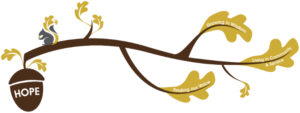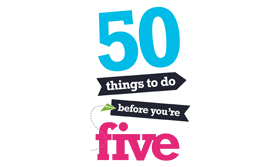
Religion and World Views
Rational / Vision
Founded in hope St. Mary’s CE (VA) Primary School is a place where all can find their voice, grow in wisdom and live well in community and service.
The Science curriculum at St. Mary’s provides a strong opportunity to deliver our school’s Christian vision.
We believe that hope gives us optimism for a better future.
Finding our voice – Oracy is fundamental to our Science curriculum. We believe that Science gives pupils the opportunities to make enquiries by asking and answering questions harbouring curiosity about the world around them. Pupils are given opportunities to hear and speak a variety of quality language which develop their vocabulary; facilitating their ability to articulate scientific concepts clearly and precisely. By doing so they are given the opportunities to confidently express their ideas subsequently growing in self-esteem and self-confidence.
Living in community and service –facilitates a firm foundational understanding of the world through the disciplines of biology, chemistry and physics. Through learning about these disciplines pupils learn how science has impacted theirs lives and how it is central to the world’s future prosperity.
Growing in wisdom –By building upon this foundational knowledge pupils recognise how science can be used to explain what is occurring around them, predict how things will behave in the future, and analyse causes and consequences.
Provision/Implementation
- Our approach to teaching and learning within Science allows teachers and pupils to explore science in a highly practical way. We aim for pupils to use scientific language, processes and methods through different types of scientific enquiries; in a highly practical way. They are given opportunities to explore key questions practically. The core concepts are central to the Science subject knowledge map as the conceptual pillars which outline learning outcomes in a progressive way from EYFS to Year 6. The conceptual pillars are:
- Encompass scientific knowledge about the physical, chemical and biological aspects of our world and beyond.
- Through our science curriculum, pupils are given opportunities to orally explore complicated scientific concepts through practical enquiry.
- Knowledge organisers will be used alongside each science topic and referred to throughout the topic.
- Vocabulary generators are used to support vocabulary learning.
- Teaching and learning incorporates modelling and using of technical language and terminology to clearly explain scientific processes.
- Evidence is built through collecting photographs and comments for a class curriculum book throughout the year against the conceptual pillars on the Science Subject Knowledge Map.
- Each child record individual written work (where applicable) in a separate, individual science book.
- An evaluation of the class learning is recorded on planning.
- Evidence of collecting and presenting data is evidenced in individual pupil books.
- Photographs from each science topic will be recorded as evidence on the Shared Teacher network.
- Teachers use targeted questioning which enables the teacher to make informed judgments on pupil’s progress against the science subject knowledge map.
- A whole school Science display is clearly visible in the shared area and is regularly updated to reflect learning actoss EYFS, KS1 and KS2.
- Impact is continuously assessed through both formative and summative assessment.
- Science leaders are responsible for ensuring that the
Impact
In following the Science curriculum alongside the Subject Knowledge Map, our expectation is that our pupils will be able to;
- Describe processes and key characteristics using technical language.
- Use technical language and terminology to clearly talk about scientific concepts.
- Apply their mathematical knowledge enabling them to collect data, present and analyse data.
- Plan different types of scientific enquiries to answer raised questions.
- Control variables in practical experiments.
- Take measurements using a range of scientific equipment with increasing accuracy and precision; taking reading where appropriate.
- Ask and answer their own types of questions about scientific phenomena.
- Make predictions based on test results.
- Report and present findings; including conclusions, causal relationships and explanations in oral and written form.
- Identify scientific evidence that has been used to support or refute ideas or argument.













